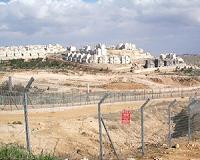| . |  |
. |
Ramallah, Palestinian Territories (AFP) Dec 9, 2010 As Washington admits it has failed to find a way to salvage direct peace talks, the Palestinians are looking at alternatives, boosted by diplomatic support from Latin America. Over the past few weeks, Palestinian officials have been talking up their options if peace talks with Israel totally collapse -- one of which is seeking recognition for a unilateral declaration of statehood. And this week, that option took another small step towards becoming a reality as Argentina announced its recognition of an independent Palestine on 1967 borders, just days after a similar move by Brazil. Argentina's statement was quickly followed by a commitment from Uruguay to do the same in 2011. The declarations were made just days before Washington admitted defeat in its efforts to secure an Israeli freeze on Jewish settlement building in the occupied West Bank -- the Palestinians' condition for resuming direct peace talks. With direct negotiations now off the agenda, the two sides look set to return to indirect contacts, a situation which could well see the Palestinians embrace alternative strategies to secure their long-awaited state. The recognition by Brazil and Argentina won praise from the Palestinians but was rejected by the Israelis, who described the move as a violation of the 1993 Oslo peace accords and counterproductive for efforts to reach a negotiated solution. The late Palestinian leader Yasser Arafat first issued a declaration of independence at a meeting in Algiers in November 1988. Since then 105 countries have recognised an independent Palestinian state on 1967 borders, which encompass the Gaza Strip and the West Bank, including east Jerusalem, territories which were occupied by Israel in that year's Six Day War. Kosovo, a former province of Serbia with an ethnic Albanian majority, has been going through a similar process since it declared independence in February 2008 after the failure of UN-backed talks on its status. To date, it has been recognised in a drip-by-drip process by 72 countries. Although a total collapse of the peace talks looks unlikely at this stage, the Palestinians have been drawing up their options, the first of which would be to seek US recognition of an independent state -- an issue raised by Palestinian chief negotiator Saeb Erakat in Cairo on Wednesday. "Israel's defeat of US efforts places the region at a real crossroads," Erakat said, expressing hope that the US administration "would recognise the Palestinian state within the 1967 borders" as a response to Israel's intransigence. "Decisions are needed and, if the United States wants to safeguard the two-state solution, it must recognise the Palestinian state within the 1967 borders," he told reporters. If Washington decides against, the Palestinians say they will turn to the United Nations Security Council, and then to the General Assembly for acknowledgement. In case of failure on those fronts, Abbas would then demand that the United Nations place the Palestinian territories under an international mandate. The next option would see them declaring null and void all previous agreements with Israel. The final alternative would involve the dissolution of the Palestinian Authority, which would force Israel to assume responsibility for the territories as an occupying power. Palestinian political analyst Abdel Majid Sweilem said the Latin American recognitions were "a first step towards creating a favourable climate if the Palestinian leadership is to seek UN recognition of statehood." The first practical step would be for the Palestinians to declare that peace negotiations had failed, said Samir Awad, a professor of international politics at Bir Zeit University in the West Bank. "The Palestinian leadership has to explicitly announce the failure of talks with Israel so that recognitions of the Palestinian state do not give Israel a pretext to procrastinate during negotiations," he told AFP. "We must use these international moves to create a reality," he said. Earlier this week, Palestinian prime minister Salam Fayyad said he was confident that the Latin American announcement "will be followed by other recognitions throughout the world." "They constitute an important turning point for several other countries, including those who count in international decision-making," he said.
Share This Article With Planet Earth
Related Links
 US opposes Israel settlements: spokesman
US opposes Israel settlements: spokesmanWashington (AFP) Dec 8, 2010 The United States continues to oppose Israeli settlements in the West Bank, but is holding out hope for a Mideast peace deal next year despite a continued impasse over building there, a State Department spokesman said Wednesday. "Our position on settlements has not and will not change," spokesman PJ Crowley told reporters. "The United States does not accept the legitimacy of continued Is ... read more |
|
| The content herein, unless otherwise known to be public domain, are Copyright 1995-2010 - SpaceDaily. AFP and UPI Wire Stories are copyright Agence France-Presse and United Press International. ESA Portal Reports are copyright European Space Agency. All NASA sourced material is public domain. Additional copyrights may apply in whole or part to other bona fide parties. Advertising does not imply endorsement,agreement or approval of any opinions, statements or information provided by SpaceDaily on any Web page published or hosted by SpaceDaily. Privacy Statement |